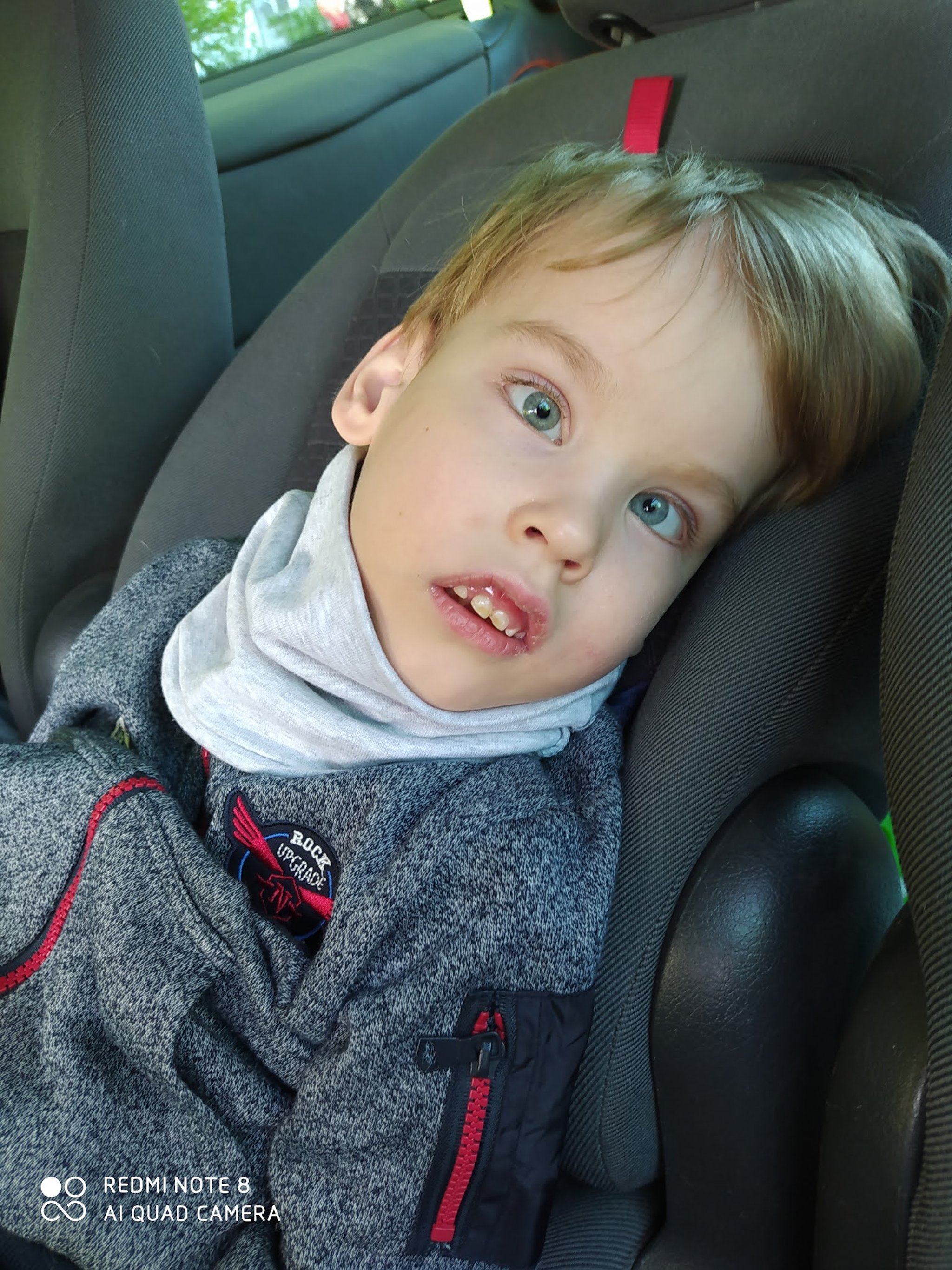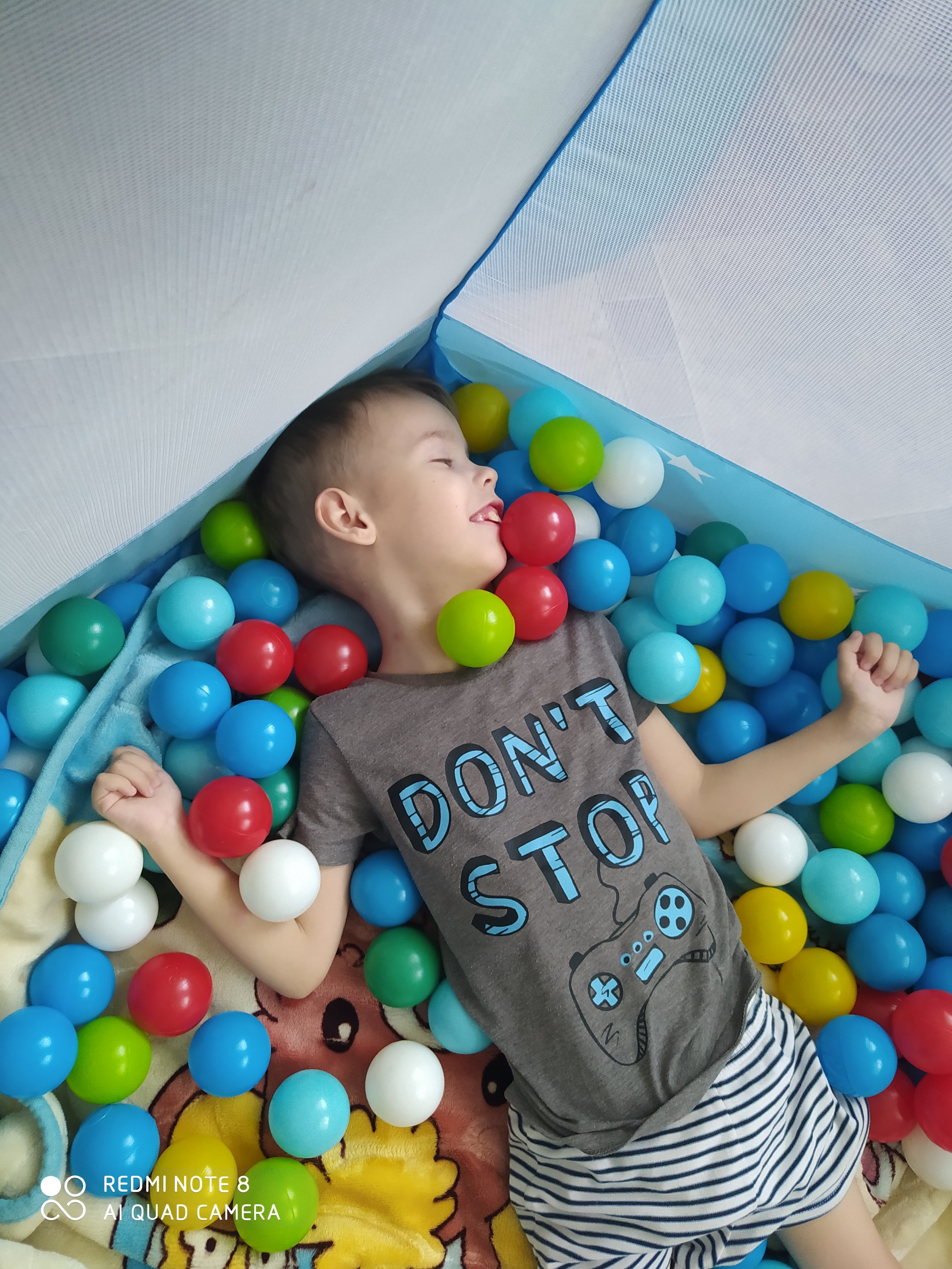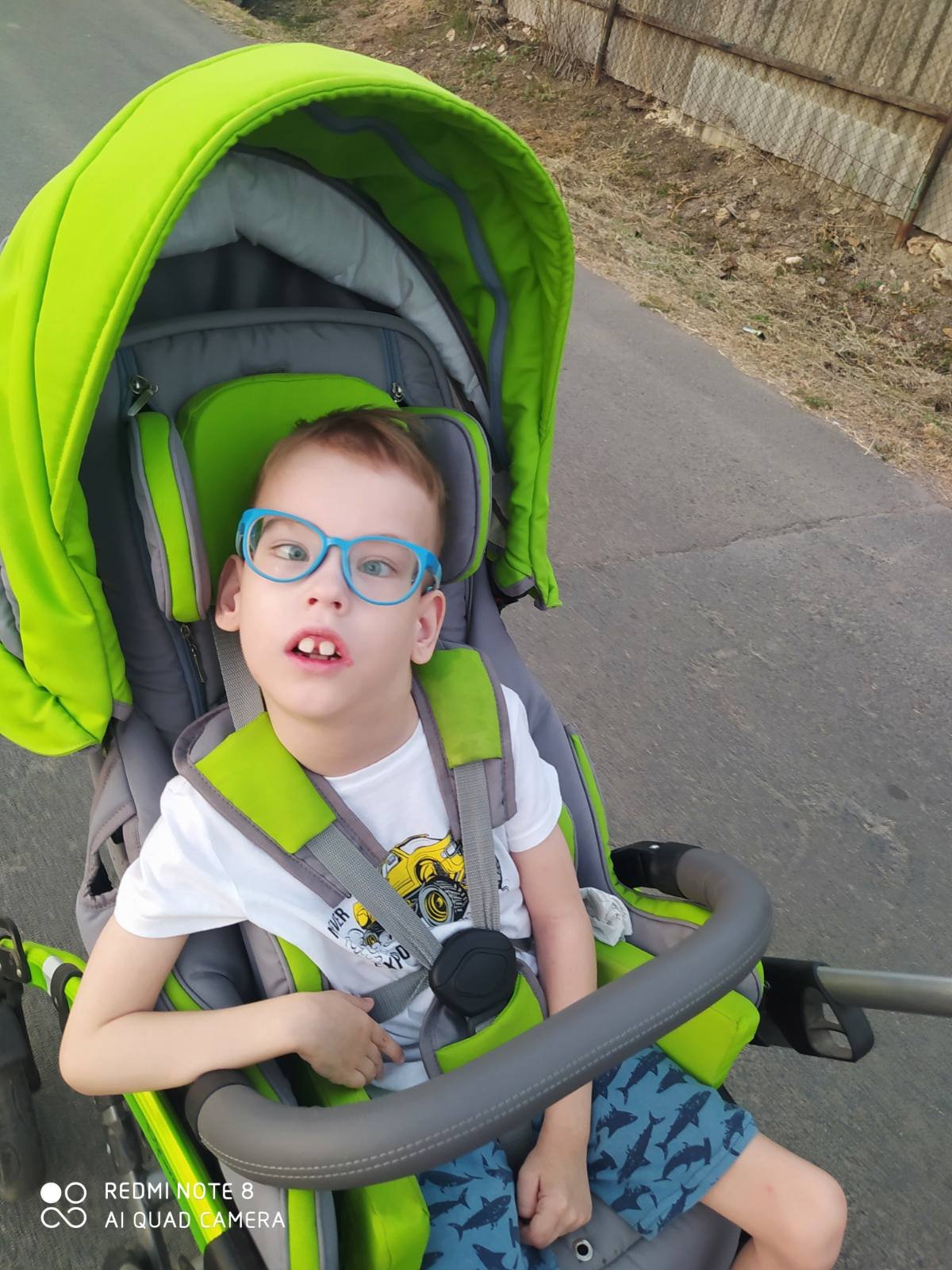The Rozhkova Family Story
Submitted by Glib’s mother, Larysa:
Glib was born in 2017. We began to have serious concerns for his health when, at 2.5 months, he had trouble holding his head up, was generally lethargic, was slow to gain weight, and developed stridor and nystagmus.
We began seeing a neurologist, undergoing many consultations and medical studies, all while doing physical therapy. By the time Glib was seven months old, his condition had not improved.
We turned to geneticists, although at that time we had not yet been diagnosed with PMD. When Glib was 1 year old, the stridor went away. Later, the nystagmus became less noticeable, general muscle hypotonicity remained, and spasticity began to appear.
To help Glib gain weight, we selected a specialized nutrition plan and engaged in physical rehabilitation with great enthusiasm. We attended classes in the pool, exercise therapy, massage courses, and hippotherapy 2 times a week. Later, we started working with a speech therapist. Hippotherapy classes and contact with horses were very positive, they helped him learn to hold his body, develop coordination, and improve his emotional state.
Since the paresis persisted and Glib was unable to acquire new significant skills, we again turned to the genetic center. After an MRI and other studies, we received the results of clinical sequencing and the diagnosis was confirmed. Glib was almost 5 years old when he was officially diagnosed with Pelizaeus-Merzbacher Disease.
Receiving such a diagnosis was very painful and difficult to accept. There remains little information about whether treatment will be developed for all children.
According to the results of the genetic test, my son does not have a typical breakdown of the PLP1 gene, but the disease has developed completely physically and this is also visible on MRI.
With age, Glib's physical and cognitive deficits have become more obvious, but at the same time, we have good contact with him. He knows how to show us what he needs, he is very emotional, loves listening to music, and loves walks near the sea.
His vision has also improved and he can now fix his gaze better, which was not the case in early childhood. We are also trying to keep him in optimal physical condition and continue to undergo examinations at the children's hospital twice a year.
As we have been living in war conditions here in the Ukraine for the past two years, we see fewer opportunities for rehabilitation, but more difficulties and worries. I hope that in the future, treatment for PMD will become a reality for all children!




